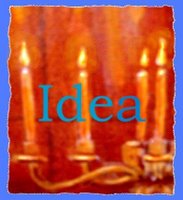Sunday, June 18, 2006

On the Road with a Bass-playing Poetry Accompanist
Having spent most of my life obsessed with music, poetry has always had to come in through the back door. I was crazy about Poe’s works when I was very young and I managed to glean a smattering of meaning from various English classes. I had one teacher who loved poetry greatly and I’m loathe to admit that I did more than my share of dozing in his classes - not because there was anything wrong with his teaching at all. The fault was mine entirely. I finally got my act together and many years later wrote him a letter of apology. I’ve tried to clean up my peasant-like condition and just in time, too. I now have friends who take great delight in Poetry as well as having a daughter who is a great student of the subject. In deference to them, I try not to expose my prodigal past.
One highlight of my poetry experience was doing dramatic readings of poems accompanied by improvised music. I would read the poems and some of my friends would make up the music. Sometimes we'd switch and I would imrpovise, too. That was a lot of fun back in the sixties. The audience seemed to get a kick out of it. This fact sets up an interesting tale from a bass playing friend of mine. Let’s call him Bob. Bob is a true classical bassist, meaning that classical music is all he plays. Jazz is not in his lexicon. Bassists who plays in every style are a different breed altogether. Classical Bassists are usually very affable people who believe they represent a long tradition of musical high ground. They consider themselves the unspoken leaders of the orchestra, and, while all the other instrumentalists have some sort of quaint opinion of their own place in the musical scheme of things, the bass players are true believers in their own importance. If you could say that first violinists seem like caffeinated, puritanical chipmunks, than you could say that bass players seem like long-suffering lions. After hours, bass players can be extraordinary good-time Charlies.
So, back to Bob…. Bob and I used to travel together to out of town gigs. Bass players always have a fine large station wagon or van to carry their elephant sized instrument We always yakked constantly and flipped from one topic to another. I avoided too much political blather since I am rather conservative , compared to most musicians, and usually try to avoid seeming like a fossil from a former age (even though that's true). After concerts we would head out home. Bob would plant a bottle of Jim Beam on the dashboard; light up a J and off we would go. Of course this was some years ago, before he knew better. After all, this is the twenty-first century and better judgement rules. One day, while traveling to an engagement, I was mentioning that I had read about a police raid at a farm in
This scene was verified for me in the biography that Anne Sexton’s daughter, Linda Gray Sexton, wrote…. I actually bought the book and read it. Not that I knew or cared much for Anne’s work, but I wanted to read about the effect crazy people have on others. The book does not disappoint. Anyway, she describes various poetry readings attended by her and her mother. It seems you have two followings at these events, the Apollonian and the Dionysian. The Apollonian folks go home after the punch and cake and read more poetry. The Dionysian people are just getting started for the evening. The punch and cake are the just the beginning.
With my own musical obsessions now pretty much contained, I have to admit I am turning back to poetry. A friend once suggested that there must be an answer to why people hold poetry in lower regard today than in the past, when some even chose to speak poetically. There must be lots of good reasons. Any ideas?